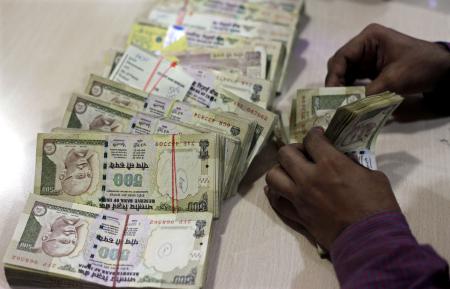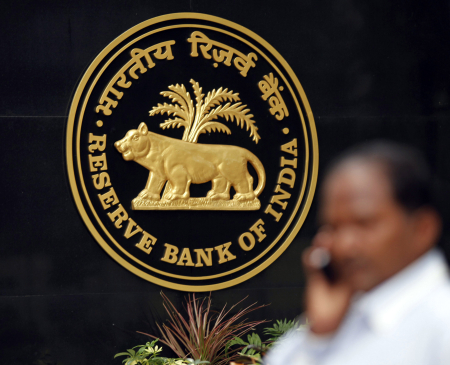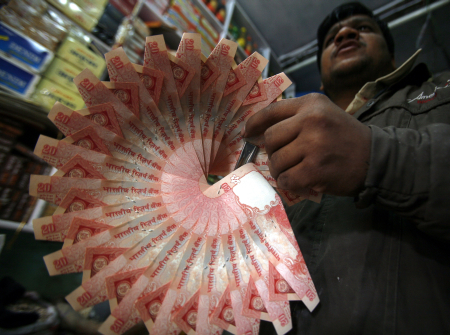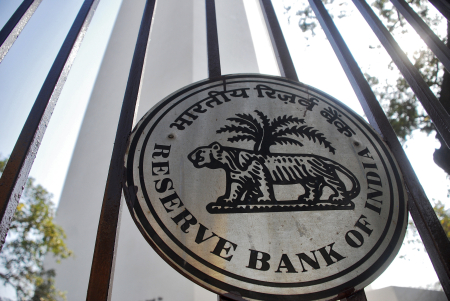 | « Back to article | Print this article |
Court stays order to reveal top loan defaulters
A court has stayed an order to publicly name top 100 loan defaulters.
The Reserve Bank of India was asked by the Central Information Commission to make the names of defaulters available by Saturday, but the Delhi High Court has stayed the order.
In a reply to a question in the Lok Sabha on Friday, Union Minister of State for Finance Namo Narain Meena admitted that the RBI was told by the CIC to display this information on its website by December 10.
Admitting a petition filed by the RBI, Justice Vipin Sanghi passed an interim ex-parte order, asking P P Kapoor, who had sought the information, to respond why the CIC order of November 15 should not be quashed.
Click NEXT to read more...
Court stays order to reveal top loan defaulters
The next hearing is scheduled for February 27. The RBI has claimed that the CIC order is in violation of the Right to Information Act.
The minister, replying to another question, said the 27 public sector banks have written off Rs 35,342 crores (Rs 353.42 billion) as bad loans since 2008.
The country's largest lender, State Bank of India, accounted for 22.33 per cent of this write-off of non-performing assets, totaling Rs 7,893 crore (Rs 78.93) in the three financial years until 2010-11.
Click NEXT to read more...
Court stays order to reveal top loan defaulters
According to Meena, SBI waived off Rs 4,007 crore (Rs 40.07 billion) in 2010-11, Rs 1,990 crore (Rs 19.9 billion) in 2009-10 and Rs 1,896 crore (Rs 18.96 billion) in 2008-09, while other public sector banks that wrote off debts of Rs 1,000 crores (Rs 10 billion) each were Punjab National Bank (Rs 2,911 crore [Rs 29.11 billion]), Bank of India (Rs 2,008 crore [Rs 20.08 billion]), Union Bank of India (Rs 2,005 crore [Rs 20.05 billion]), Allahabad Bank (Rs 1,801 crore [Rs 18.01 billion), Indian Overseas Bank (Rs 1,593 crore [Rs 15.93 billion]), IDBI Bank (Rs 1,559 crore [Rs 15.59 billion]), Bank of Baroda (Rs 1,421 crore [Rs 14.21 billion]), Oriental Bank of Commerce (Rs 1,333 crore [Rs 13.33 billion]), Syndicate Bank (Rs 1,179 crore [Rs 11.79 billion]) and UCO Bank (Rs 1,060 crore [Rs 10.6 billion).
Click NEXT to read more...
Court stays order to reveal top loan defaulters
Asked whether the real estate sector was the major beneficiary of this write-off, the minister said the RBI has told the government that this information was not available.
When asked whether the government will probe these waive offs, he said these sums were declared bad debts and written off because these loans were outstanding for a considerable period, prospects of recovery were remote as no tangible or realisable securities were available and also because legal action takes too long to make such recoveries.
Write offs were also resorted to bring down NPAs, he said.
Click NEXT to read more...
Court stays order to reveal top loan defaulters
In the stayed CIC order, the applicant had sought from the RBI the details of default in loans taken from public sector banks by various industrialists, besides list of defaulters, top 100 defaulters, names of businessmen, their firms' names, principal amount, interest, date of availing loan and date of default.
The CIC, vide its order of November 15, had directed the central bank to display on its website complete information on all such industrialists as part of suo-motu disclosure mandated under section 4(1)(b)(xvii) of the RTI Act.
Click NEXT to read more...
Court stays order to reveal top loan defaulters
RBI counsel T R Andhiyaarjuna secured the High Court's interim injunction, pointing out that the CIC order would have a far-reaching impact as this kind of information was confidential and the Information Commissioner has dealt with the matter in a wrong way, without considering all the relevant provisions under the RBI Act.
He also said that the RBI was exempted from providing such information under section 8(1)(a).
"It's not open to the CIC to issue such a direction when the RBI is exempted under section 8 (1) (a)," he said.





